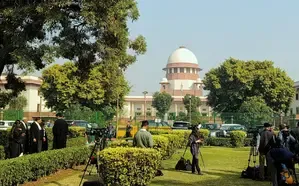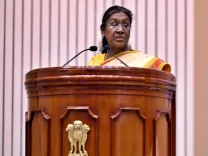Did the SC Uphold Telangana’s 4-Year Residency Rule for Medical Admissions?

Synopsis
Key Takeaways
- Supreme Court supports Telangana's residency rule.
- 85% of medical seats reserved for local candidates.
- Amendment allows exceptions for certain students.
- Importance of clear residency definitions emphasized.
- Aims to reduce legal disputes in admissions.
New Delhi, Sep 1 (NationPress) The Supreme Court on Monday affirmed the legitimacy of Telangana’s regulations that delineate “local candidates” for medical college admissions.
A Bench led by CJI B.R. Gavai and Justice K. Vinod Chandran dismissed claims that the modifications to the definition of “local candidates” under the Telangana Medical & Dental Colleges Admission (Admission into MBBS & BDS Courses) Rules, 2017, were arbitrary, exclusionary, or unconstitutional.
The law allocates 85 percent of seats to candidates who have either completed four consecutive years of education in Telangana or have resided in the local area for the same duration, even if they did not study there, and have taken the qualifying exam in Telangana.
The Bench, led by CJI Gavai, acknowledged that the rule aims to support individuals who have genuinely studied and lived in Telangana. It noted that the Telangana High Court lacked the authority to modify the definition established by the Presidential Order under Article 371D of the Constitution.
Additionally, the Bench criticized the Telangana High Court’s directives regarding domicile-based reservations, stating that without a precise legal definition of “residence”, the reservation policy becomes impractical and susceptible to continuous legal disputes.
“We must emphasize that without a definition of what constitutes residence, or at least a reference to a statute or rule for issuing a residence certificate, the High Court’s directives would lead to an inconsistent situation, rendering the reservation ineffective and subject to litigation,” stated the CJI Gavai-led Bench.
In response to concerns raised by students affected by parental transfers or assignments outside the state, the Telangana Advocate General proposed an amendment to Rule 3, which the apex court accepted. This amendment allows exceptions for children of government employees, defense personnel, and others with connections to Telangana but who studied outside the state due to unavoidable circumstances.





